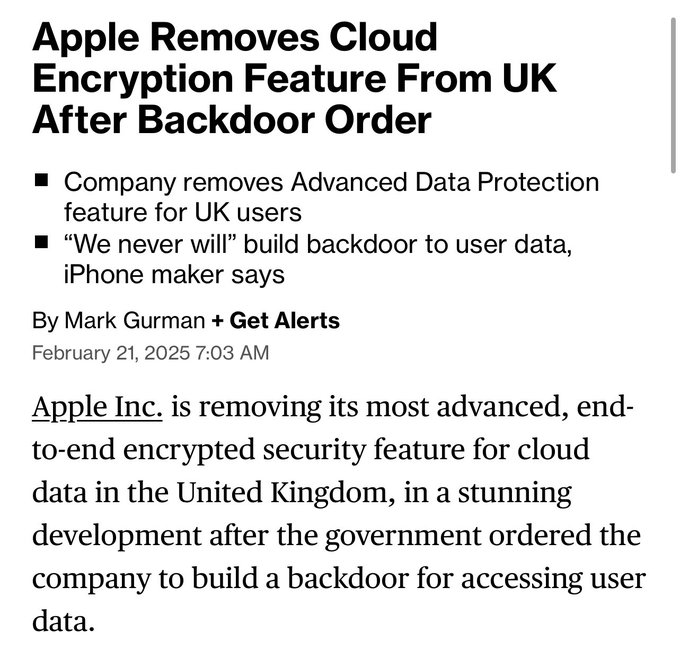Apple pulled its Advanced Data Protection tool in the UK after the British government ordered the company to give it access to user data around the world.
(LifeSiteNews) -- Apple pulled its highest-level security feature in the U.K. after the government ordered the company to give it access to user data.
The U.K. government demanded “blanket access” to all user accounts around the world rather than to specific ones, a move unprecedented in major democracies, according to The Washington Post.
The security tool at issue in the U.K. is Advanced Data Protection (ADP), which provides end-to-end encryption so that only owners of particular data – and reportedly not even Apple – can access it.
“Apple can no longer offer Advanced Data Protection (ADP) in the United Kingdom to new users and current UK users will eventually need to disable this security feature,” an Apple spokesman said.
According to Apple, the removal of ADP will not affect iCloud data types that are end-to-end encrypted by default such as iMessage and FaceTime.
The nine iCloud categories that will reportedly no longer have ADP protection are iCloud Backup, iCloud Drive, Photos, Notes, Reminders, Safari Bookmarks, Siri Shortcuts, Voice Memos, Wallet Passes, and Freeform.
These types of data will be covered only by standard data protection, the default setting for accounts.
Journalist and Twitter Files whistleblower Michael Schellenberger slammed the U.K.-initiated move as “totalitarian.”
The decision was otherwise roundly condemned on X as “horrific,” “horrendous,” the hallmark of a “dictatorship,” and even “the biggest breach of privacy Western civilization has ever seen.”
Elon Musk declared Friday that such a privacy breach “would have happened in America” if President Donald Trump had not been elected.
Jake Moore, global cybersecurity adviser at ESET, commented that the move marks “a huge step backwards in the protection of privacy online.”
“Creating a backdoor for ethical reasons means it will inevitably only be a matter of time before threat actors also find a way in,” Moore said.
Britain reportedly made the privacy invasion demand under the authority of the Investigatory Powers Act of 2016.



